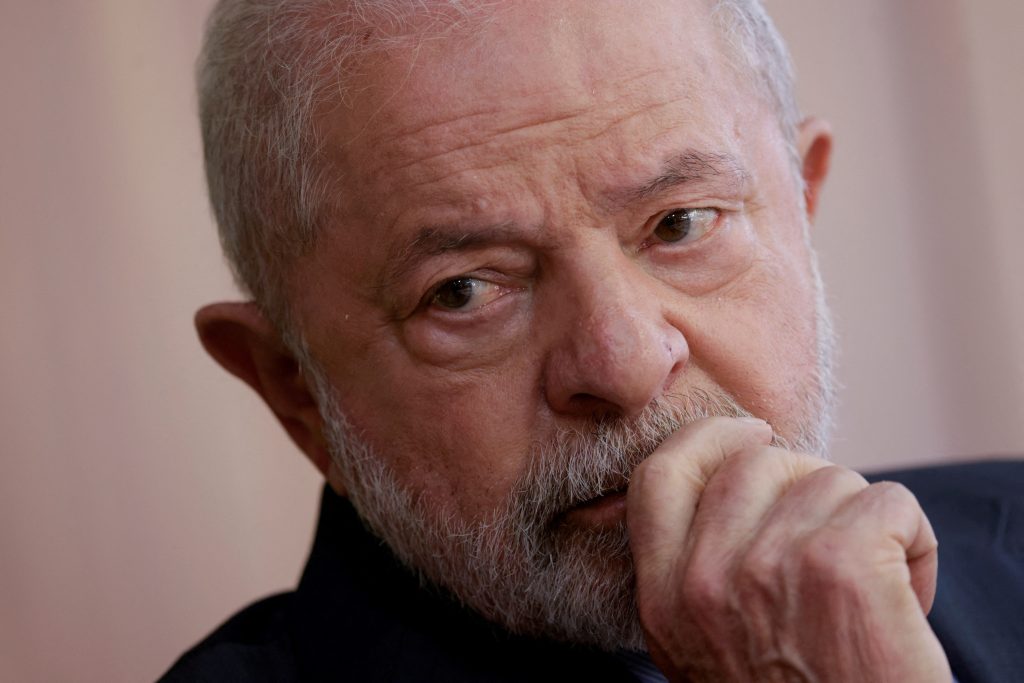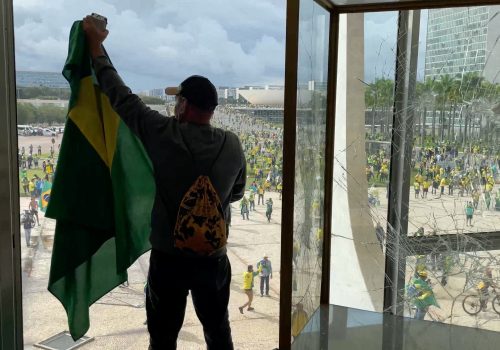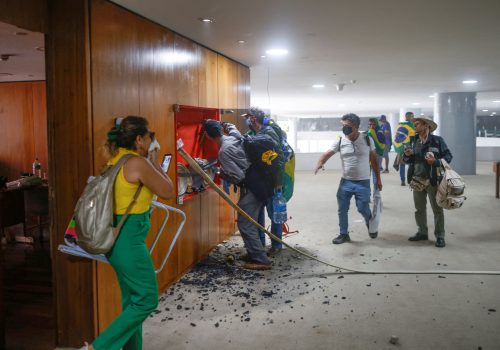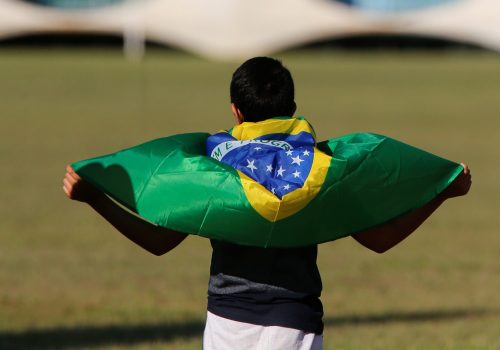Brazilian President Luiz Inácio Lula da Silva’s trip to Washington this week marks a historic occasion in the US-Brazil relationship. More than ever before, the Western Hemisphere’s two largest democracies find themselves on similar ground: On January 8, supporters of Brazil’s former president invaded the buildings of Brazil’s three branches of government in a scene that drew a striking resemblance to the January 6 insurrection in the United States two years prior.
While it is simplistic to compare the two, such public threats to democratic stability may have created a shared concern that could realign US and Brazilian foreign-policy objectives and ultimately the bilateral relationship. With Lula’s visit with US President Joe Biden at the White House on Friday coming just weeks before March’s Summit for Democracy, the leaders should talk through ways to address the common threats to democracy they face, such as cooperation and knowledge-sharing on legal and defense issues related to Brazil’s January 8 investigations. That conversation can also be a jumping off point for discussing other shared priorities including grappling with the changing geopolitical landscape, protecting the environment and addressing climate change, and increasing trade across the Americas.
The synergies are there, but the window of opportunity for Biden and Lula to capitalize on the moment is disappearing as ordinary citizens, amid rising polarization, are losing the sense that democracy is valuable. That makes the strength of the US and Brazilian democracies—collectively serving almost seven hundred million people—all the more important.
The geopolitical agenda
Lula’s reemergence onto the regional and global stage can turn Brazil into the United States’ preferred partner in the Western Hemisphere. Brazil could prove a valuable diplomatic and trade entry point to a region where Washington has faced challenges—and even downright hostility—in pursuing its interests. Lula, who has the support of both the emerging and older generations of left-wing leaders and touts a pragmatic approach to the economy and foreign relations, has the type of clout that can convene Latin American and Caribbean leaders for frank discussions on the future of the hemisphere. One of Lula’s top foreign-policy priorities will be to strengthen ties across Latin America and Caribbean. This could also present an opportunity for Brazil to play a mediating role with regard to the Venezuela crisis, for example.
In addition, Brazil’s number one trading partner is China, with the United States a close second. Recently, US foreign-policy positions toward Latin America have prioritized outcompeting China in the region. But in that competition, the United States has been losing. It is important for the United States to present Latin American and Caribbean countries such as Brazil with alternatives to some of China’s key investments, particularly in renewables and technology.
Lula is positioning Brazil as a potential diplomatic force in proposing peace negotiations on the Russia-Ukraine war. Bringing to mind the negotiating role that Brazil played in the Iran nuclear deal, Lula proposed a club of non-aligned nations to find peace through diplomatic means, although that is not a very popular option in Western capitals. Lula could be an important ally in eventual conversations about Russia’s war in Ukraine, especially because Brazil will take the Group of Twenty (G20) presidency in 2024.
Progress on the environment
Beyond the geopolitical sphere, Biden and Lula should discuss how they can work together to protect the environment and address the effects of climate change. In one of the Biden administration’s first moves, the president issued the Executive Order on Tackling the Climate Crisis at Home and Abroad. But doing so abroad requires partners, and in Lula, Biden may have found one. These two leaders should work together immediately and with urgency, as the Western Hemisphere is significantly affected by the climate crisis: Latin America and the Caribbean is the region second-most prone to natural disasters (behind the Asia-Pacific), and the United States is a frequent target of intense hurricanes that result from warming waters.
The fact that Lula is bringing Minister of Environment Marina Silva with him to Washington is a sign of how much he is prioritizing the issue. There is great expectation that under Lula, Brazil can push forward efforts to address the climate crisis, particularly because the country houses the “lungs of the Earth”—the Amazon, which is one of the most biodiverse zones on the planet. Protecting the forest while also sustainably developing the region is a key element in capping and potentially reducing carbon emissions while also furthering the country’s—and the region’s—economic prosperity. The United States could take a big step forward by contributing to the Amazon Fund, which Norway and Germany already do.
The first leader-to-leader meeting between Biden and Lula is full of symbolism. It shows the resumption of stronger US-Brazil relations, a willingness to leverage opportunities for cooperation on the environment, and the United States’ recognition of Brazil as a more strategic partner—and a more significant actor in the region and the world. And, following the January 8 events, the meeting shows that the United States and Brazil are a united pro-democracy front invested in strengthening their democratic institutions and promoting democratic values globally.
Valentina Sader is an associate director and the Brazil lead at the Atlantic Council’s Adrienne Arsht Latin America Center.
Further reading
Wed, Jan 18, 2023
As Brazil investigates Bolsonaro’s role in anti-democratic riots, should the US kick him out?
New Atlanticist By Gissou Nia, Thomas S. Warrick
While the Biden administration needs to demonstrate moral leadership, acting too hastily could fuel the flames of Brazil’s polarized politics and damage democracy in the long term.
Mon, Jan 9, 2023
Experts react: Brazil has suffered its own attack against democracy. Here’s what the government and its allies can do next.
New Atlanticist By
As the tear gas clears, substantial questions remain about the state of Brazil’s democracy and institutions—and what the United States can do in response to the riot.
Thu, Sep 15, 2022
Democratic institutional strength before and beyond elections: The case of Brazil
Issue Brief By Valentina Sader
Brazil—Latin America’s largest economy and the fourth-largest democracy in the world—will elect its next president, governors, congress, and state-level assemblies in October 2022. This is one of the most momentous elections in recent years, a result of the inflection point that Brazil faces.
Image: FILE PHOTO: Brazil's President Luiz Inacio Lula da Silva attends a breakfast with journalists at Planalto Palace in Brasilia January 12, 2023. REUTERS/Adriano Machado/File Photo



